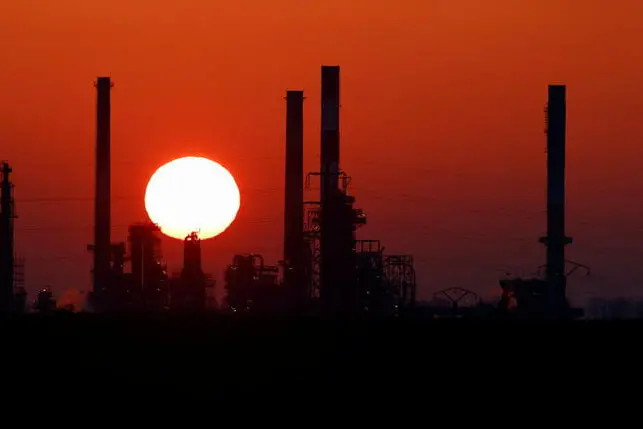PHOTO
MELBOURNE: Oil prices rose for a fourth day to a seven-year high as an outage on a pipeline from Iraq to Turkey increased concerns about an already tight supply outlook amid worrisome geopolitical troubles in Russia and the United Arab Emirates.
Brent crude futures rose $1.44, or 1.7%, to $88.95 a barrel at 0230 GMT, adding to a 1.2% jump in the previous session. The benchmark contract climbed to as much as $89.05, its highest since Oct. 13, 2014.
U.S. West Texas Intermediate (WTI) crude futures climbed $1.51, or 1.8%, to $86.94 a barrel, adding to a 1.9% gain on Tuesday. WTI earlier jumped to a high of $87.08, its highest since Oct. 9, 2014.
Turkey's state pipeline operator Botas said on Tuesday that it cut oil flows on the Kirkuk-Ceyhan pipeline after an explosion on the system. The cause of the explosion is not known.
The pipeline carries crude out of Iraq, the second-largest producer in the Organization of the Petroleum Exporting Countries (OPEC), to the Turkish port of Ceyhan for export.
The loss comes as analysts are forecasting tight oil supply in 2022, driven in part by demand holding up much better than expected against the highly contagious Omicron coronavirus variant, with some calling for a return of $100 oil.
Geopolitical issues in Russia, the world's second-largest oil producer, and the UAE, OPEC's third-largest producer, are adding to the supply concerns.
The UAE late on Tuesday called for a meeting of the United Nations Security Council to condemn an attack on Abu Dhabi on Monday by Yemen's Houthi movement, which has threatened further attacks.
Meanwhile, Russian troops are lined up on the border of Ukraine, with the White House calling the crisis extremely dangerous and saying Russia could invade at any point.
The tensions raise the prospect of supply disruptions at a time when OPEC, Russia and their allies, together called OPEC+, are already having difficulty meeting their agreed target to add 400,000 barrels per day of supply each month.
"OPEC+ is falling short of hitting their production quotas and if geopolitical tensions continue to heat up, Brent crude might not need much of a push to get to $100 a barrel," OANDA analyst Edward Moya said in a note.
Jet fuel consumption is rising with growth in international flights, while road traffic is much higher than the same time last year, Commonwealth Bank commodities analyst Vivek Dhar said in a note.
"OPEC+ supply constraints and the ongoing increase in global oil demand will likely keep oil prices well supported in coming months," Dhar said.
(Reporting by Sonali Paul; Editing by Christian Schmollinger) ((Sonali.Paul@thomsonreuters.com; +61 407 119 523))





















